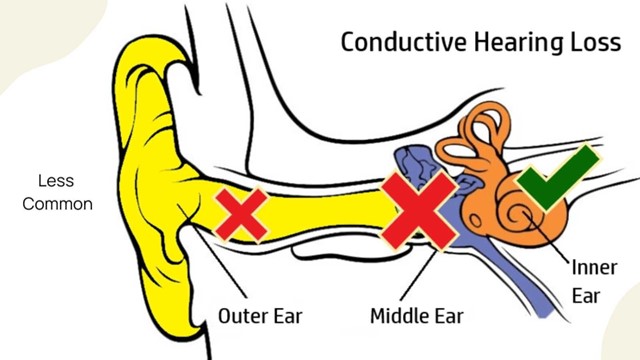A client, who is recovering from bariatric surgery, is eating from a po [portable commode]. Nursing assessment is of greatest concern in the immediate postoperative period for which of the following?
Impaired Mobility.
Impaired Gas Exchange.
Self-Care Deficit.
Diarrhea.
The Correct Answer is D
Diarrhea. A client who is recovering from bariatric surgery and is eating from a portable commode is at risk for diarrhea. Diarrhea can cause fluid and electrolyte imbalances, leading to dehydration, which can be life-threatening, especially in the immediate postoperative period.
Option A, impaired mobility, would not be a priority concern in the immediate postoperative period for this client.
Option B, impaired gas exchange, is not related to the situation.
Option C, self-care deficit, maybe a concern but is not as significant as diarrhea in the immediate postoperative period.
Nursing Test Bank
Naxlex Comprehensive Predictor Exams
Related Questions
Correct Answer is D
Explanation
Conductive hearing loss occurs when there is a blockage or damage in the outer or middle ear, which prevents sound from reaching the inner ear. The accumulation of cerumen in the ear canal can cause conductive hearing loss. Sensorineural hearing loss occurs due to damage to the inner ear or auditory nerve, while mixed hearing loss is a combination of both conductive and sensorineural hearing loss. Central hearing loss occurs due to damage in the central nervous system and is not related to cerumen buildup in the ear canal.

Correct Answer is B
Explanation
Provide the client with warm fluids. Shivering is the body's natural response to try to warm itself up. Providing warm fluids to the client can help to increase the client's core temperature and decrease shivering.
Choice A is incorrect because a hypothermia blanket is used to reduce the client's core temperature, which is not appropriate for a client who is shivering.
Choice C is incorrect because a light blanket may not provide enough warmth for the client who is shivering.
Choice D is incorrect because the room temperature should be kept warm to prevent the client from getting colder and shivering more.
Whether you are a student looking to ace your exams or a practicing nurse seeking to enhance your expertise , our nursing education contents will empower you with the confidence and competence to make a difference in the lives of patients and become a respected leader in the healthcare field.
Visit Naxlex, invest in your future and unlock endless possibilities with our unparalleled nursing education contents today
Report Wrong Answer on the Current Question
Do you disagree with the answer? If yes, what is your expected answer? Explain.
Kindly be descriptive with the issue you are facing.
